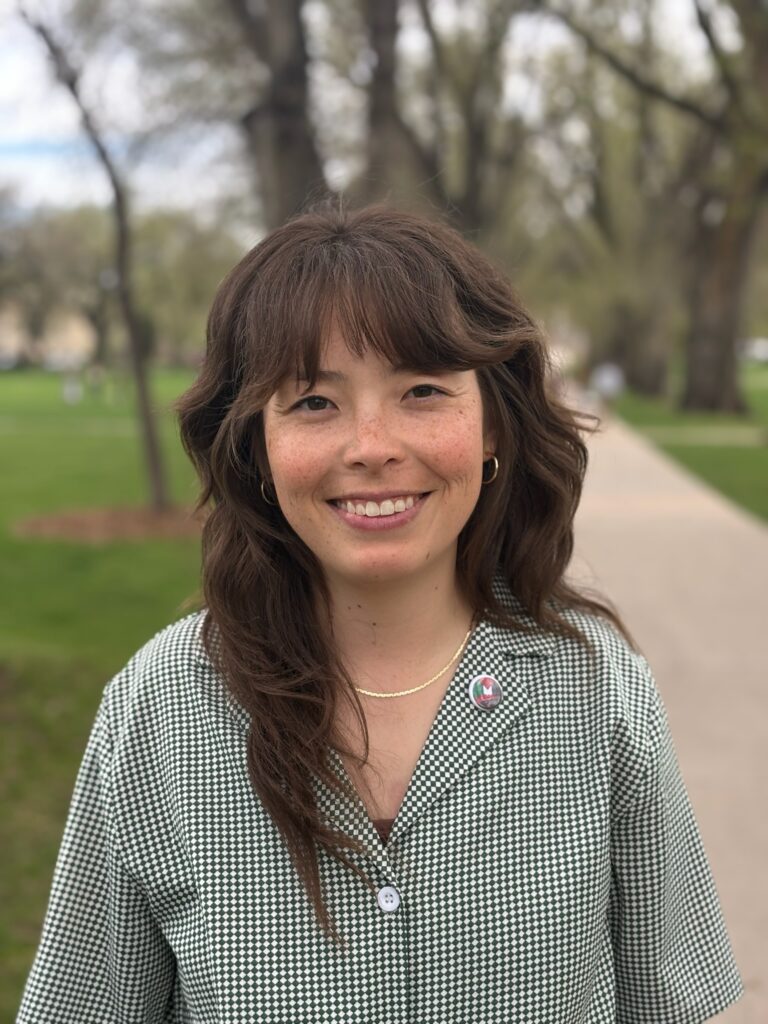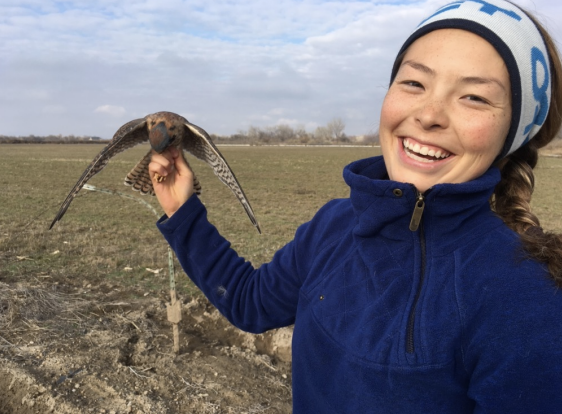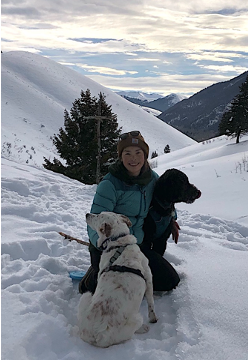
Hanna McCaslin is approaching her second graduate commencement from Colorado State University. This semester, McCaslin is graduating with a Ph.D. in Ecology after having completed and graduated with a master’s in applied statistics in August 2023.
McCaslin’s research focuses on urban ecology, social justice and quantitative ecology. During her time at CSU, McCaslin has been supported by awards like the National Science Foundation Graduate Research Fellowship Program. In addition to contributing to teaching undergraduate courses, she has published four articles, including three as first author, and already has several more underway.
Beyond her scholarly achievements, she actively engages in community outreach, contributing to equitable housing initiatives and serving on the city climate equity committee.
In her own words
Q: Why did you choose CSU?
A: I chose CSU for my Ph.D. because I was drawn to the statistical ecology research that the CSU Department of Fish, Wildlife,and Conservation Biology is known for, including innovative research for statistically modeling animal movement. Additionally, I was excited about the graduate student community and the diversity of ecological research occurring at CSU.

Q: Why did you choose to pursue two degrees simultaneously?
A: I’ve always been excited about how math and statistics can help us understand and solve conservation issues. While my Ph.D. research allowed me to delve deep into one specific area of statistics and its applications in ecology, I found myself wanting broader training in statistical foundations so that I’d have the knowledge to choose the most applicable statistical tool for a given ecological question.
We are currently in a time when data, artificial intelligence, and algorithms underpin not only ecological research and conservation, but almost every aspect of our daily lives. With that, statistics and data are often held up as “objective” measures or truths, both within science and beyond. This can lead to data and statistics perpetuating biases and oppression in dangerous ways. Much of my research aims to uncover and rectify these biases within conservation and environmental justice, so I wanted to ensure I have a solid background in statistics.
Q: What was the biggest challenge you faced on your way to graduation?
A: I had to unlearn a lot of what I had learned and idolized about environmentalism and conservation in the past, and I became very disillusioned with many aspects of science and conservation. Learning about the legacies of oppression and injustice that are deeply intertwined with conservation, I became very unsure of how I could align my values and goals with a career in this field. I considered leaving graduate school and changed course several times during my degree. Ultimately, though, this unlearning and uncertainty have helped me find a community that has become so important to my growth as a scientist and person and re-envision the impact I hope to make throughout my career.
Q: What was your favorite experience at CSU?
A: All my favorite experiences are related to the incredible community of colleagues and friends I am lucky to have here. It can be hard to feel belonging in many academic spaces, and it can often feel like progress within conservation is slow. My favorite experiences are moments when I’ve been inspired by innovative people making meaningful change within conservation and academia.
I have also really loved growing as a teacher while I have been at CSU because it has been so invigorating to see how dedicated and creative Warner College’s undergraduate students are. It gives me hope to see our field embrace more perspectives and people and to hear important conversations taking place in many classes about how conservation has historically been exclusionary and violent toward many. Students — especially students of color, queer students, first-generation students and other students who have lived the consequences of environmental injustice — are leading most of these conversations, and I cannot wait for the field to be shaped by more and more of these voices.
Q: What do you hope to do after graduation?
A: I am excited to continue to work toward environmental justice and a more inclusive conservation field, and I am still exploring what that might look like. For now, I am staying in Fort Collins for a postdoc position with the Colorado State Forest Service and the Department of Forestry and Rangeland Stewardship at CSU. Fort Collins has come to feel like home, and I’m looking forward to continuing my involvement in this community through things like serving on the city’s Climate Equity Committee.
Q: Is there anything that you would have done differently during your college experience?
A: If I were to do anything differently over the 12 years I’ve spent in college or graduate school, I would have spent more time doing the weird things that sounded fun and exploring creative projects and side projects. These may not seem relevant to my education and career at the time, but they are. The classroom is only one of many spaces to learn and grow during college and graduate school, and I wish I had realized earlier how much I would learn from art, outreach and community beyond my immediate graduate school cohort.
Q: What advice do you have for students?

A: Yours are the voices that are going to shape what science, conservation and society look like in the future. Do not underestimate the importance of your perspective or the power you have to influence what’s being taught and which voices are elevated in your classes and across campus. I am inspired by the incredible student organizers and activists at CSU and on campuses across the US right now. It can be discouraging to feel like you’re being discounted or ignored, but no matter what your cause, keep going because we need student voices and passion more than ever.
Click here to view CSU’s Outstanding Grads.